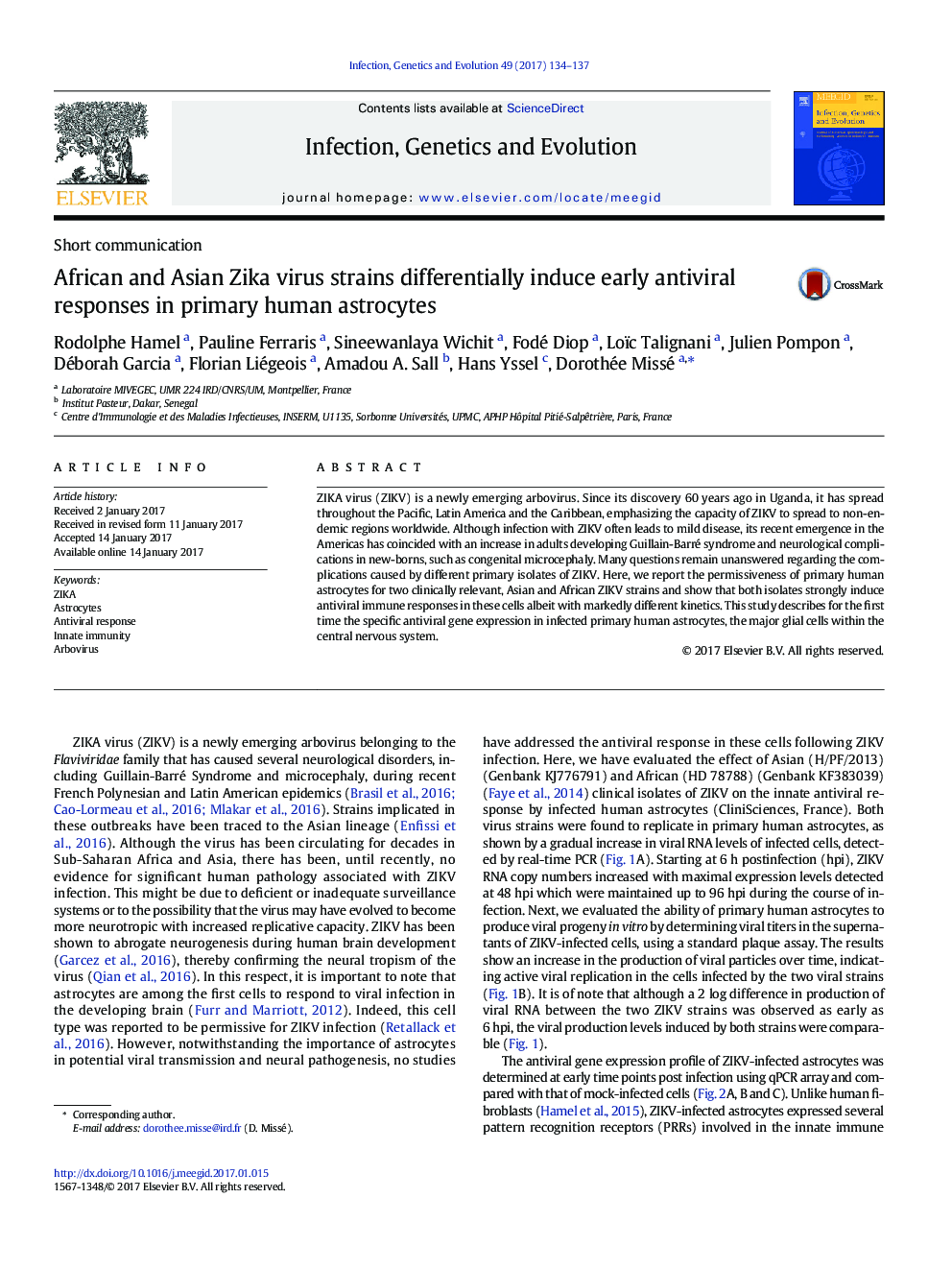| Article ID | Journal | Published Year | Pages | File Type |
|---|---|---|---|---|
| 5590640 | Infection, Genetics and Evolution | 2017 | 4 Pages |
Abstract
ZIKA virus (ZIKV) is a newly emerging arbovirus. Since its discovery 60Â years ago in Uganda, it has spread throughout the Pacific, Latin America and the Caribbean, emphasizing the capacity of ZIKV to spread to non-endemic regions worldwide. Although infection with ZIKV often leads to mild disease, its recent emergence in the Americas has coincided with an increase in adults developing Guillain-Barré syndrome and neurological complications in new-borns, such as congenital microcephaly. Many questions remain unanswered regarding the complications caused by different primary isolates of ZIKV. Here, we report the permissiveness of primary human astrocytes for two clinically relevant, Asian and African ZIKV strains and show that both isolates strongly induce antiviral immune responses in these cells albeit with markedly different kinetics. This study describes for the first time the specific antiviral gene expression in infected primary human astrocytes, the major glial cells within the central nervous system.
Related Topics
Life Sciences
Agricultural and Biological Sciences
Ecology, Evolution, Behavior and Systematics
Authors
Rodolphe Hamel, Pauline Ferraris, Sineewanlaya Wichit, Fodé Diop, Loïc Talignani, Julien Pompon, Déborah Garcia, Florian Liégeois, Amadou A. Sall, Hans Yssel, Dorothée Missé,
